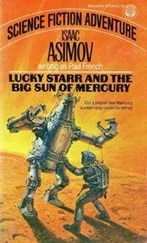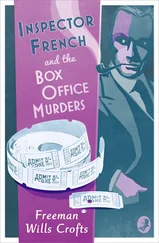Jerry Pinto - Em and the Big Hoom
Здесь есть возможность читать онлайн «Jerry Pinto - Em and the Big Hoom» весь текст электронной книги совершенно бесплатно (целиком полную версию без сокращений). В некоторых случаях можно слушать аудио, скачать через торрент в формате fb2 и присутствует краткое содержание. Год выпуска: 2014, Издательство: Penguin Books, Жанр: Современная проза, на английском языке. Описание произведения, (предисловие) а так же отзывы посетителей доступны на портале библиотеки ЛибКат.
- Название:Em and the Big Hoom
- Автор:
- Издательство:Penguin Books
- Жанр:
- Год:2014
- ISBN:нет данных
- Рейтинг книги:3 / 5. Голосов: 1
-
Избранное:Добавить в избранное
- Отзывы:
-
Ваша оценка:
- 60
- 1
- 2
- 3
- 4
- 5
Em and the Big Hoom: краткое содержание, описание и аннотация
Предлагаем к чтению аннотацию, описание, краткое содержание или предисловие (зависит от того, что написал сам автор книги «Em and the Big Hoom»). Если вы не нашли необходимую информацию о книге — напишите в комментариях, мы постараемся отыскать её.
Em and the Big Hoom — читать онлайн бесплатно полную книгу (весь текст) целиком
Ниже представлен текст книги, разбитый по страницам. Система сохранения места последней прочитанной страницы, позволяет с удобством читать онлайн бесплатно книгу «Em and the Big Hoom», без необходимости каждый раз заново искать на чём Вы остановились. Поставьте закладку, и сможете в любой момент перейти на страницу, на которой закончили чтение.
Интервал:
Закладка:
‘Don’t you like him?’ I asked.
‘Oh, he’s a great guy. You’ll see.’
‘And you don’t know his name?’
‘I do. It’s AGM,’ he said.
Now what do you say to that?
I think I might like it here, as long as they don’t give me too many numbers to type…
We had carte blanche to read Em’s diaries and letters. Sometimes she read them out to us, her spectacles perched high on her nose, the black frame hiding her thick eyebrows. I never saw her tear up anything; every scrap and note written to her went into a series of cheerful cloth bags. On certain days, she would rummage around in the bags and pull out a note, a fragment, a whole letter. She would glance at some, read some in full, and dream.
While Em’s letters were public documents in the family, neither Susan nor I read her diaries during her lifetime (Susan still won’t). Perhaps we had understood very early that they would give us no clues to her illness, or ways to reach her on her worst days. Or — and this may be closer to the truth — we were afraid of what we might find there, and afraid of having to deal with it. Even now, I look in Em’s notebooks not for my mother but for Augustine’s Beloved.
It didn’t take Augustine, aka AGM, long to spot the new girl in the office of ASL — Ampersand Smith Limited — the engineering goods company at which Imelda was the new stenotypist and he was the junior manager, sales. Two days later, he spoke to her:
Booming Voice spoke to me. What nerve. He bounces past my desk, flashes his blue peepers at me and says, ‘Hello buttercup,’ and ricochets off the opposite wall to do something else.
I find it difficult to picture my father in these entries. To me, he seemed built for endurance, not speed. The thought of him ricocheting off walls is odd. I have tried reconstructing him in my head, dressing him in what up-and-coming young men wore to the office at the time: white shirt, black trousers, black shoes and socks. Like all such men, he probably also kept another couple of shirts with him, and a tin of talcum powder, so that he could change when the humidity leached his shirt of its starch. He was a man who liked women. When he won The Illustrated Weekly of India ’s crossword contest, he bought every woman in his office a yellow rose with a little fern wrapped in white tissue and tied with a yellow satin ribbon. For that day, so Gertrude told Imelda, the office had felt like a garden. And for weeks the perfume of the roses had lingered, if not in reality, then at least in the imaginations of the young women of ASL. Gertrude had opened her bag and showed Imelda that the satin ribbon still lay at the bottom.
‘To remind me that all men aren’t the same, dear,’ she had said. Gertrude was a veteran of the love wars. She had been ‘carrying on’ with a married man for so many years, she had lost count. ‘And to add insult to injury, dear, he’s Muzzlim.’
Imelda was too young to understand that love could be an injury. She was too young to understand why Motasim’s religion was an added insult.
She was also too young to respond to ‘Hello buttercup’. So she hadn’t.
‘Why didn’t you?’ Gertrude was surprised.
‘I didn’t know what to say.’
‘You could have said “Hello”?’
But in all the films Imelda had seen, the suave young man would say ‘Hello buttercup’ and the heroine would answer such impudence with the kind of remark that would stop his airy advance through fields of irises and daisies and tansies. Such a crisp response marked her as someone different from the rest, a fitting sparring partner, someone to love.
That day, ‘Hello, buttercup’ had seemed unanswerable, and Imelda had only managed a weak roll of the eyes — ‘not even with the panache of Anna Magnani,’ she recalled. Gertrude did not know all this. In her world, men went hunting and women waited to be hunted. But when a man began to circle, it was up to the prey to draw the hunter in.
‘Unless you’re a fool for love, my dear,’ she said, over a Coke float at Bombelli’s. ‘Unless you throw your cap over a windmill.’
Gertrude became Imelda’s closest friend at ASL, and would have been her guide in matters of the heart, had her own love life not been so pitted with compromise. At first, Gertrude’s allusions to her secret sorrow over Motasim caused Imelda deep distress. But over a couple of weeks she began to see that the references were mechanical. Gertrude had settled into a comfortable pattern in which she had love and tragedy in equal measure, and a male presence in her life to warm her bed and take her to dak bungalows in hill stations, but never to get in the way of her decisions.
‘Buy your own house, I say to all the girls. I can see them thinking, “Who’s this soiled dove to give us advice?” But my heart is good and I know what’s what and God is my judge. If it’s your home, you can do what you want there. If it’s your home, no one is going to tell you to sit if you want to stand.’
‘Not even Motasim, Gertie?’ asked Imelda.
‘ Certainly not Motasim,’ said Gertrude. ‘Do you know he wasn’t married when we met? And it was like that — ’ and here she snapped her fingers.
‘ Un coup de foudre !’ said Imelda happily. She had always wanted one of those to happen, not necessarily to her but to someone, so she could watch from a safe distance.
‘That only. He took one look at me at Andrade’s — this was after the flickers, we had all gone from the office — one look and he knew. He was looking at me, saying with his eyes, “I want, I want.” I was so young then, so innocent. I believed in love.’
Like many women Gertrude saw herself as a cynic, largely because the man she loved would not marry her and because she had two cigarette holders — one of onyx and one of mother-of-pearl — which she dug out of her capacious bag when she could be bothered. And finally, because there had once been a good young man, a medical representative, who had loved her and wanted to take her away from it all.
‘And so I put in a word,’ she told me on one of the few occasions she came to meet her old, old friend Imelda, our Em. She chose her times carefully, never coming when Em wanted to meet her. She would come when Em was depressed and withdrawn. This meant Susan or I had to entertain her for the mandatory forty-five minutes which she thought constituted a visit to a sick friend. Then she could go away and pretend to be offended when Em really did want to see her. I could see that she thought this made her a friend in need. It was one of my first lessons in the self-deception people practise on themselves. I hated talking to Gertrude for this reason. But I loved talking to her because she had known Em when she was whole. I loved it also because talking to anyone normal was an invitation to the world of ordinary people who had ordinary woes and worries: money, sex, sin and real estate, for instance. They were not, or so I imagined, people with ambivalences about their mothers or fears about their own acceptability.
‘I put in a word with your father,’ Gertrude said. ‘If you’re looking to talk to her, I told him, you’ll have to go a little easy. No yorricking about.’
‘Yorricking?’
‘You’ll have to step carefully, I told him. She wasn’t like one of us; she wouldn’t love’em and leave’em. And she seemed lost, I could tell.’
• • •
Gertrude was right. Em was not quite sure what she was doing in an office. She began her day with Mass; or she was supposed to. And then she was on the tram to work. It seemed like a job she could have done in her sleep: taking dictation and typing letters, doing the filing and answering telephones. Em had been a teacher before this, and I could imagine her as one. I couldn’t see her as a steno. My version of elitism, perhaps.
Читать дальшеИнтервал:
Закладка:
Похожие книги на «Em and the Big Hoom»
Представляем Вашему вниманию похожие книги на «Em and the Big Hoom» списком для выбора. Мы отобрали схожую по названию и смыслу литературу в надежде предоставить читателям больше вариантов отыскать новые, интересные, ещё непрочитанные произведения.
Обсуждение, отзывы о книге «Em and the Big Hoom» и просто собственные мнения читателей. Оставьте ваши комментарии, напишите, что Вы думаете о произведении, его смысле или главных героях. Укажите что конкретно понравилось, а что нет, и почему Вы так считаете.











